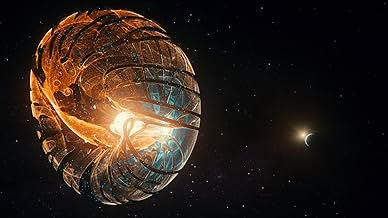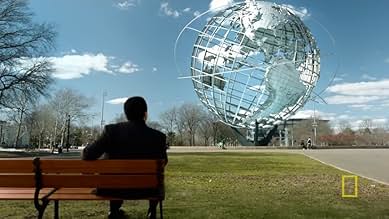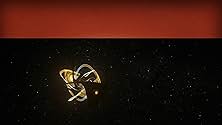Neil deGrasse Tyson lleva al público a través de una serie de viajes espirituales de exploración revelando lugares inexplorados.Neil deGrasse Tyson lleva al público a través de una serie de viajes espirituales de exploración revelando lugares inexplorados.Neil deGrasse Tyson lleva al público a través de una serie de viajes espirituales de exploración revelando lugares inexplorados.
- Ganó 2 premios Primetime Emmy
- 2 premios ganados y 2 nominaciones en total
Explorar episodios
Opiniones destacadas
Imagine a show that takes you on a cosmic journey in your mind. A journey to the farthest edges of the known multiverse and your own backyard. This show will make you think and question everything you think you know about science, space, and your place in the grand design. So sit back and behold a wonderous adventure.
The Cosmos is back with another amazing story telling that indulges a person into magnificence. This shows takes us into journey to far distant Galaxies to the deep lying microbes billions of years old. This show ignites the explorer inside you.
This is must watch for all the Stargazers and Astronomy lovers.
This is must watch for all the Stargazers and Astronomy lovers.
The graphics are simply stunning. And Tyson's humbleness in presentation is simply astonishing considering how big he got after the first show. I also love that they kept the 2D animation style when talking about past scientists and people with the 2nd season and Tyson. This should basically be mandatory viewing for all students in high school without question.
Before this season began, the subtitle "possible worlds" gave me the impression that the 13 planned episodes would, one by one, show us a series of scientifically justifiable but altogether imaginary worlds (or more specifically: planets). This series is however, something completely different from that.
After having watched the first six episodes and reading some earlier reviews on the series, I get where the negative reactions stem from: wrongful expectations, not unlike my own.
What this series is doing, won't necessarily become apparant in either the first or the second episode. This may lead to the series coming off as somewhat childlike, but this has a reason, which is explained in the sixth episode (and is in hindsight deductible from the series predecessors). The goal of this series is to educate the broadest possible public, on what scientists today know about what possible worlds are ou there, outside of our own home planet.
It does so by first building a very solid foundation on how the scientific community and with it human society, evolved from our cave dwelling ancestors up until now. It explains what ideas, insights, experiences and so on have been key to getting us where we are now. With the season being halfway through at the moment of writing, it seems to me that my original expectations won't be completely off, but rather they are limited to the last few episodes.
So if you are expecting ground breaking new discoveries tickeling the imagination of a highly educated viewers public, you'll be in for a disappointment. This has however, never been the premise of these series. The goal was, and still is: bridging the gap between the scientific community and the greater general public.
And this is what the series does impressively well.
What this series is doing, won't necessarily become apparant in either the first or the second episode. This may lead to the series coming off as somewhat childlike, but this has a reason, which is explained in the sixth episode (and is in hindsight deductible from the series predecessors). The goal of this series is to educate the broadest possible public, on what scientists today know about what possible worlds are ou there, outside of our own home planet.
It does so by first building a very solid foundation on how the scientific community and with it human society, evolved from our cave dwelling ancestors up until now. It explains what ideas, insights, experiences and so on have been key to getting us where we are now. With the season being halfway through at the moment of writing, it seems to me that my original expectations won't be completely off, but rather they are limited to the last few episodes.
So if you are expecting ground breaking new discoveries tickeling the imagination of a highly educated viewers public, you'll be in for a disappointment. This has however, never been the premise of these series. The goal was, and still is: bridging the gap between the scientific community and the greater general public.
And this is what the series does impressively well.
Just like Cosmos: A Spacetime Odyssey this season is amazing and even more. Definitely my #1 documentary. Great narration, astonishing visuals and the topics are so interesting too!
¿Sabías que…?
- TriviaThe limited series is a follow-up to the 2014 television series Cosmos (2014), which followed the original Cosmos: un viaje personal (1980) series presented by Carl Sagan on PBS in 1980.
- ConexionesFollows Cosmos: un viaje personal (1980)
Selecciones populares
Inicia sesión para calificar y agrega a la lista de videos para obtener recomendaciones personalizadas
- How many seasons does Cosmos: Possible Worlds have?Con tecnología de Alexa
Detalles
- Tiempo de ejecución45 minutos
- Color
- Mezcla de sonido
- Relación de aspecto
- 16:9 HD
Contribuir a esta página
Sugiere una edición o agrega el contenido que falta





































